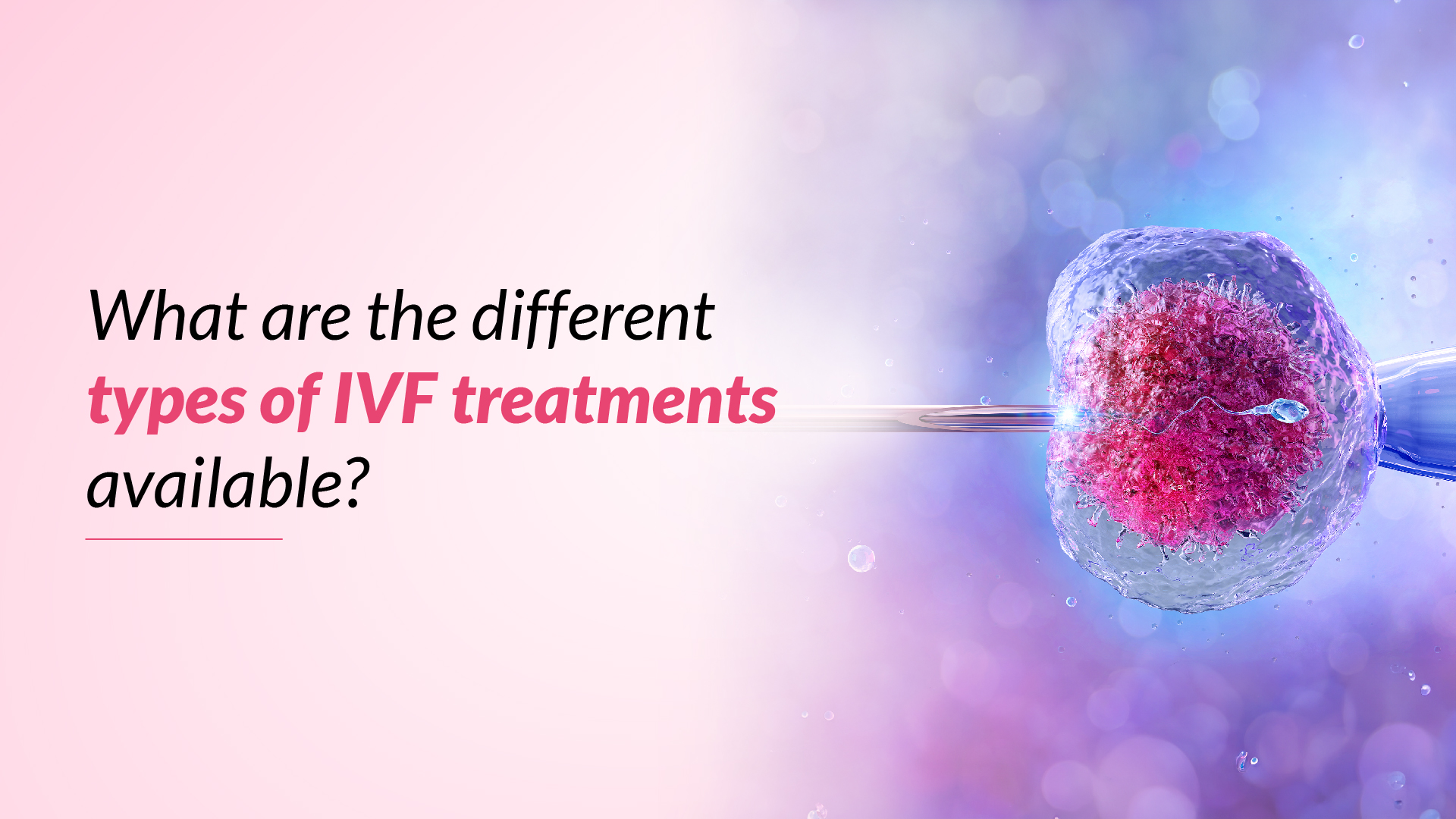What Are the Different Types of IVF Treatments Available?
Reviewed By: Dr. Prachee Kulkarni, fertility specialist at Ferty9 Fertility Clinic, Kukatpally, Hyderabad
In the ever-evolving world of fertility treatments, in vitro maturation (IVM) has emerged as an innovative and promising option for individuals and couples seeking to build their families. This technique, which is a variation of the more widely known in vitro fertilisation (IVF) process, offers a unique approach to addressing various fertility challenges.
Types of IVF Fertility Treatment
Conventional IVF
Conventional IVF is the most well-known and widely used form of assisted reproductive technology. It involves stimulating the ovaries to produce more than one mature egg, which are then retrieved and fertilised with sperms in a laboratory. The resulting embryos are then put back into the uterus to achieve a successful pregnancy.
Natural Cycle IVF
Natural cycle IVF is a variation of conventional IVF, where the treatment is carried out during the female's menstrual cycle without the use of fertility medications to stimulate egg production. This approach can benefit individuals who are unable to tolerate or respond well to fertility drugs.
mini IVF
Mini IVF, also known as mild IVF, is a modified version of conventional IVF that uses lower doses of fertility medicines to stimulate the ovaries. This approach aims to produce a smaller number of eggs, which can be a more suitable option for certain patients, such as those with a poor ovarian reserve or who are at risk of developing ovarian hyperstimulation syndrome (OHSS).
ICSI
Intracytoplasmic Sperm Injection (ICSI) is a specific technique used with IVF. It involves injecting a single sperm directly into the egg, which can be beneficial for individuals with male factor infertility or when there are concerns about the quality or quantity of available sperm.
IVF using Donor Eggs
In cases where a woman is unable to produce viable eggs, either due to age, medical conditions, or genetic factors, IVF using donor eggs can be a viable option. This approach involves the use of eggs donated by another woman, which are then fertilised with the partner's or a donor's sperm and transferred to the recipient's uterus.
IVF using Donor Sperm
Similarly, IVF using donor sperm can be an option for individuals facing male-factor infertility or who require the use of a sperm donor for other reasons, such as single parenthood or same-sex couples.
In Vitro Maturation
In vitro maturation (IVM) is a variation of IVF. Here, the clinicians retrieves the immature eggs from the ovaries, which are then matured in a laboratory setting before being fertilised and transferred back into the uterus. This approach can benefit individuals who are unable to produce a sufficient number of mature eggs through traditional fertility stimulation protocols.
Also read: Supporting Your Partner Through The Challenges of Infertility
How to Choose the Right IVF Options
When it comes to selecting the appropriate IVF treatment, there are several factors to consider. In collaboration with the patient, the healthcare team will evaluate the individual's specific fertility challenges, medical history, and personal preferences to determine the most suitable approach.
Factors such as the patient's age, ovarian reserve, the cause of infertility, and the desired outcome (e.g., single or multiple births) can all influence the decision-making process. Additionally, the patient's financial situation and the availability of fertility treatments in their local area may also influence the choice of IVF option.
Patients must have open and honest discussions with their doctors to ensure that they fully understand the advantages, risks, and potential outcomes associated with each IVF treatment option. This collaborative approach can help individuals and couples make informed decisions that align with their personal goals and values.
Also read: How Soon Can You Try IVF Again After a Failed Cycle?
Conclusion
The field of fertility treatments is on a path of continued evolution, offering individuals and couples multiple options to address their unique reproductive challenges. From conventional IVF to innovative techniques like in vitro maturation, the advancements in assisted reproductive technology have expanded the possibilities for building families.
By understanding the various IVF treatment options and working closely with their doctors, patients can make informed choices in accordance with their needs and maximise the chances of a successful pregnancy. As the landscape of fertility treatments continues to progress, individuals need to stay informed and explore the options that align with their personal goals and preferences.
Visit Our Clinic:
Fertility Clinic in Hyderabad
Fertility Clinic in Visakhapatnam
Fertility Clinic in Vijayawada
Fertility Clinic in Karimnagar
Fertility Clinic in Warangal
Fertility Clinic in Rajahmundry
Fertility Clinic in Tirupati
Fertility Clinic in Kurnool

Write your message
FAQ's
What factors should I consider when choosing the type of IVF treatment?
How long does an IVF treatment cycle take?
What are the common side effects of IVF treatments?
IVF treatments can sometimes be accompanied by various side effects, which may include:
- Ovarian Hyperstimulation Syndrome (OHSS): A condition where the ovaries become enlarged with fluid accumulation in the abdomen, which can cause discomfort and other symptoms
- Mood Changes: Fertility medications can sometimes lead to mood swings, irritability, or depression.
- Bloating and Abdominal Discomfort: Some patients may experience bloating or discomfort in the abdominal area as the ovaries become stimulated and enlarged.
- Headaches: Some patients may experience headaches during the IVF treatment process.
- Breast Tenderness: The hormonal changes associated with IVF can cause breast tenderness or swelling.


